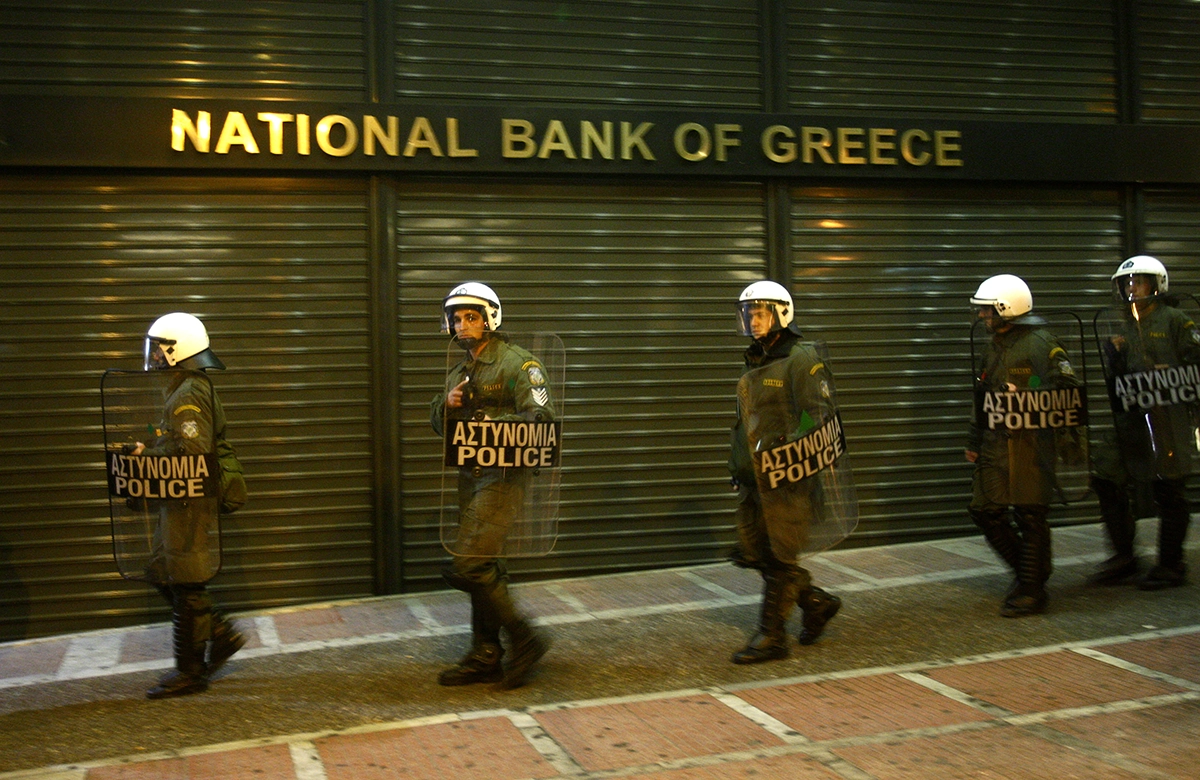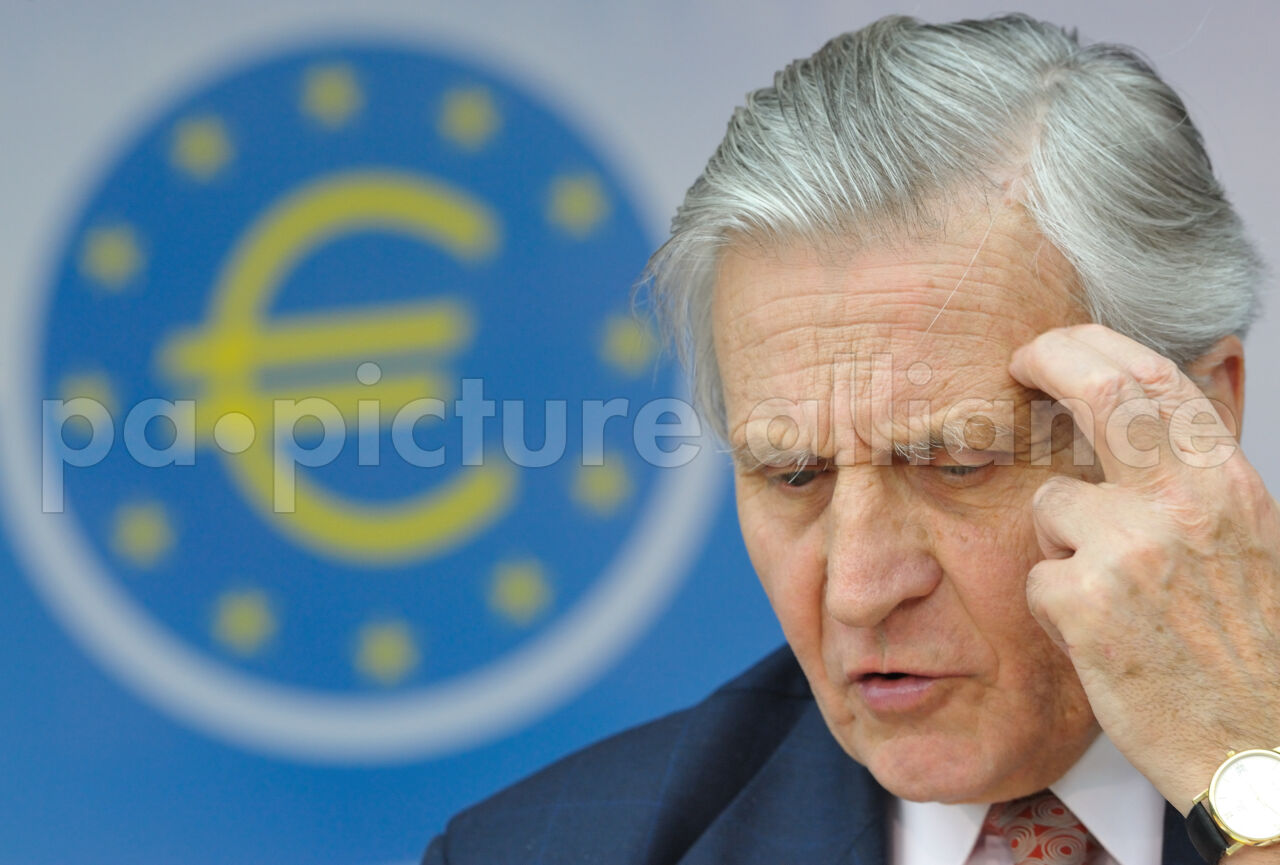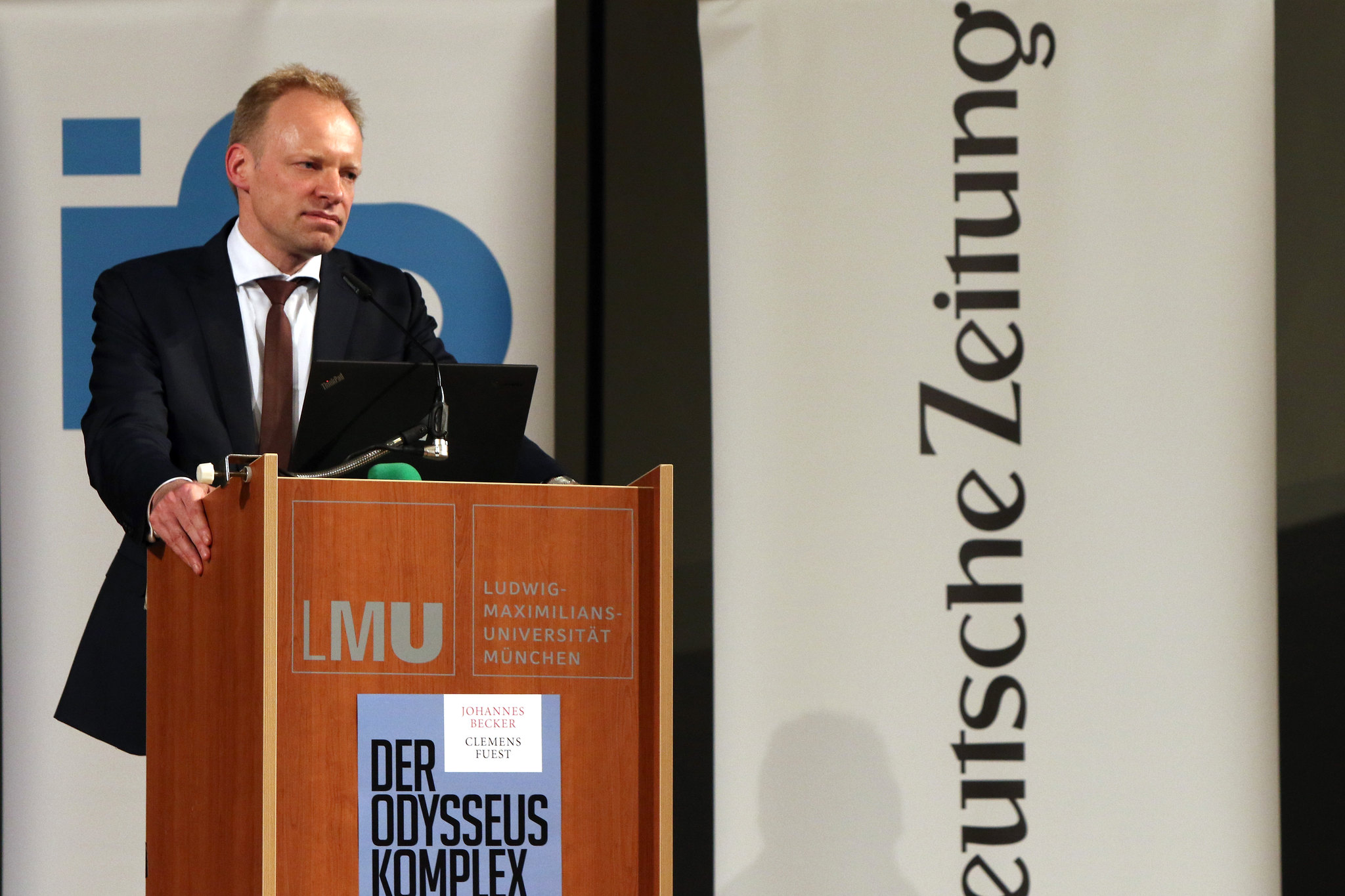The situation came to a dramatic head in the spring of 2010: Greece could no longer conceal the extent of its previously hidden budget deficit and debt. The shortfall in the national budget was four times larger than previously stated. Interest rates for Greek government bonds had become prohibitive on the capital market. Greece had to apply for financial aid on April 23, 2010, in order to avert sovereign default. That was a reason for international donors to flee. There were also huge difficulties for other eurozone countries.


How Did Greece Slide into the Crisis?
The 2010 euro crisis escalated as a result of the global financial crisis, which was triggered by the real estate bubble bursting in the US in 2007 and further exacerbated by major banks going bankrupt. The Greek government lost some of its regular revenue. A review revealed that the Greek deficit ratio was almost 16% and the level of debt was around 130% of gross domestic product. That exceeded the limits set out in the Maastricht Treaty and the Stability Pact (3% deficit and 60% debt) many times over. Greece’s standing among international rating agencies deteriorated dramatically, with the interest rate for Greek government bonds rising from 8.02% in 2010 to 25.17% in 2011.
Other Countries Get into Difficulties
This turbulence led to a massive withdrawal of capital and also to a crisis in other eurozone members. Countries such as Ireland and Spain, which were hit hard by the real estate crisis that led to a debt and banking crisis, were also pushed to the brink of national bankruptcy. Ireland’s GDP fell by 7% in 2009 and unemployment there rose to 14% in 2010. There was also a lack of important government revenue, while enormous sums had to be spent on bailing out the banks. These national bailouts amounted to around 35% of Ireland’s gross domestic product, and the debt-to-GDP ratio exploded from just 25% (2007) to almost 100% (2010). In Spain, too, economic output fell by almost 4% in 2009 and unemployment soared to 20% in 2010.


The Rescue Package is Unfurled
The EU and the European Central Bank intensified their cooperation to support the unstable countries. Together with the International Monetary Fund (IMF), they unfurled the “euro rescue package.” It approved loans only if a country adopted a rigorous austerity policy. Another EU-wide measure was the European Semester, which gave the EU Commission and the EU Council of Ministers the opportunity to review the national draft budgets in the first six months of each year and urge changes where necessary. In addition, the 2012 Fiscal Compact committed governments to a strict budgetary policy and the introduction of a debt brake. German Chancellor Angela Merkel endorsed these stringent measures, stating that the restoration of economic stability in the crisis countries required a rigorous austerity policy. Only those adopting a strict budgetary policy were able to access funds from the euro rescue package.
“Breathing Monetary Union” as a Way Forward?
Hans-Werner Sinn, President of the ifo Institute until 2016, actively participated in the conversation. He commented for the first time in a special issue of Schnelldienst in November 2010. In 2015, he summarized the many years of debate in his book “Der Euro. Von der Friedensidee zum Zankapfel” (“The Euro. From the Idea of Peace to a Bone of Contention”). His conclusion: In the event of an imbalance in the national budget, the partners of the monetary union must be deprived of the opportunity to make risky investments with other people’s money in the knowledge that potential losses would be absorbed by the community. In order to overcome the crisis, rigorous debt relief was necessary for the crisis countries. The countries receiving such relief would then have to leave the monetary union for a transitional period. That was the only way to restore their competitiveness. In such a “breathing monetary union,” it would not be unusual for countries to keep on entering and leaving it.


Five Points for Exiting the Crisis
Clemens Fuest, President of the ifo Institute since 2017, published the book “Der Odysseus-Komplex. Ein pragmatischer Vorschlag zur Lösung der Eurokrise” (“The Ulysses Complex. A Pragmatic Proposal for Solving the Euro Crisis”) together with Johannes Becker in the year he took office. The authors’ conclusion: Like Ulysses, who asks to be tied to the mast of his ship in order to resist the Sirens’ song, the euro countries must also bind themselves to fixed rules in order to avoid the seduction of new debt, deferment of reforms and lax regulation. Their proposal is a “five-point program for a stable eurozone” with reform proposals for banking regulation at the EU level, effective debt control measures, a reorientation of European rescue measures, the declaration of measures in the event that a country is unable to return to the capital market within a deadline, and lastly a clear ban on state financing by the European Central Bank and a definition of the ECB’s mandate. The prime goal of all these measures is to strengthen national responsibility for a country’s own economic policy.